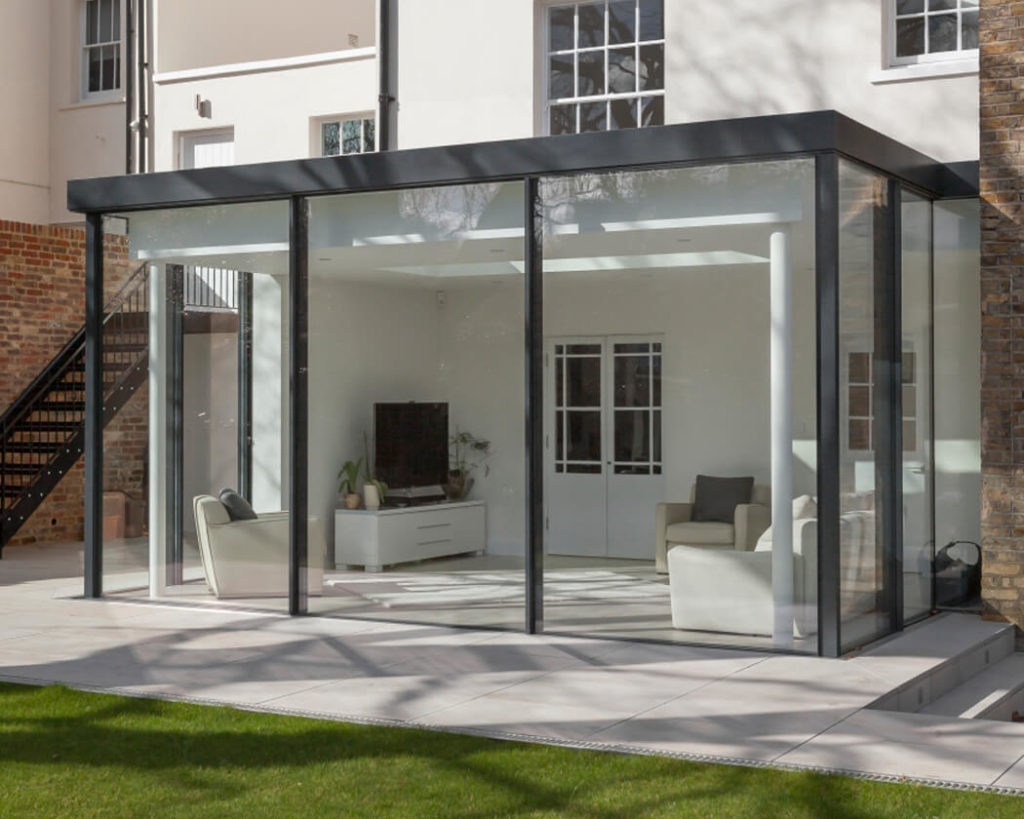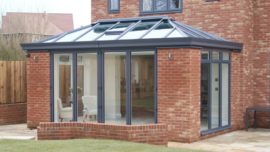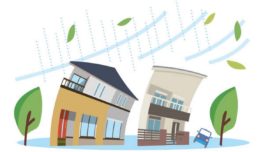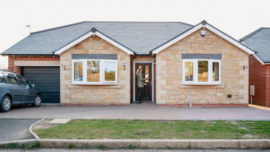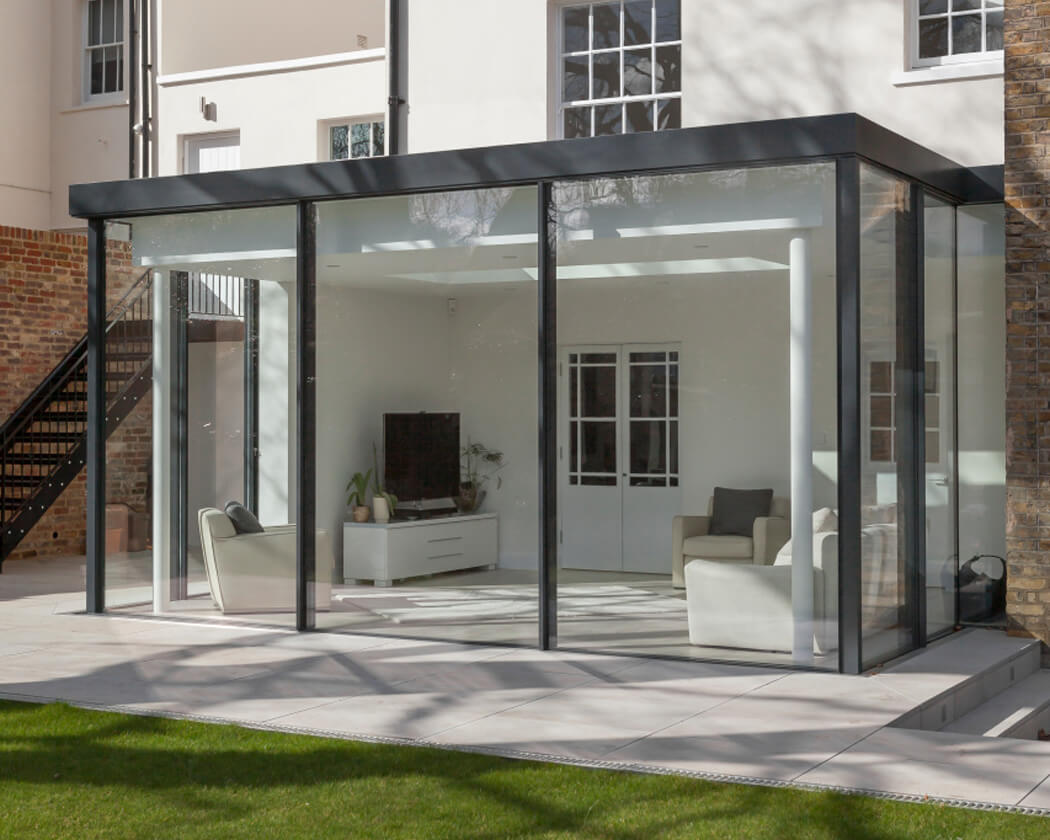
Is a glass extension the same as a conservatory?
When it comes to glass rooms, one of the most common questions asked is how are they different from a conservatory. Although, they have many similarities being that they, both allow natural light, provide a sense of indoor and outdoor living, and protect you from the elements. There are also a few differences when it comes to the two.
What is a glass extension?
Glass box extensions are made from structural glass units supported with glass beams and fins. They can create a completely clear, frameless extension space with no metal supports visible.
What is a conservatory?
A conservatory is a building or room having glass roofing and walls, usually used as a sunroom.
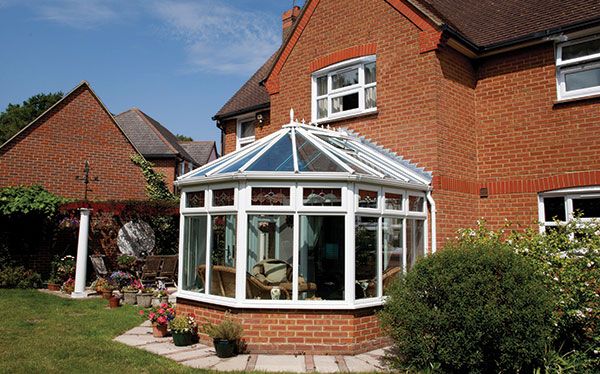
What are the differences?
The aesthetic –
This is one of the main differences between the two extensions. A glass extension’s aim is to create a smooth frameless look so that you will have unobstructed views. Giving the place a clean, minimalistic vibe with more light. Whereas, conservatories have large, thicker frames, giving the house a more traditional feel.
Planning permission –
A conservatory and a glass room are an extension to the house, meaning that it will have to follow building regulations for permitted development. If you don’t want to follow permitted development then you will have to apply for full planning permission.
Whether you need planning permission for an extension will depend on:
- Your local planning requirements
- The size of the room
- Location
- Conservation area restrictions
- The position in relation to your neighbour’s property
Cost –
Glass extensions are usually more expensive than conservatories to build. This is because the quality and durability of aluminum is a lot higher than uPVC which is used on conservatories. So, as the materials are of higher quality the glass extension would cost more to build.
The average cost of a conservatory is around £15,000; however, the prices can vary depending on the size and features. In addition, this is one of the cheapest ways to create more living space in your home.
Whereas, on average, for a glass extension the prices start from around £14,000 and can go up and over £80,000 for a large project.
Pros and Cons of conservatories and glass extensions –
Conservatories –
Pros –
- Low cost.
- Can be used nearly all year round.
- Double glazing provides higher insulation U-values.
Cons –
- Can look dated sometimes.
- Framed windows and wall components can restrict views.
- Design limitations. Can be restricted to predetermined shapes and sizes.
Glass extension –
Pros –
- Unique style.
- Uninterrupted views of the garden
- Made to measure, for more flexibility with design.
- Combine sliding walls and doors for an adaptable living space.
Cons –
- A bigger initial investment.
- They are uninsulated. You may want to add heaters to make the space usable outside of summer.
